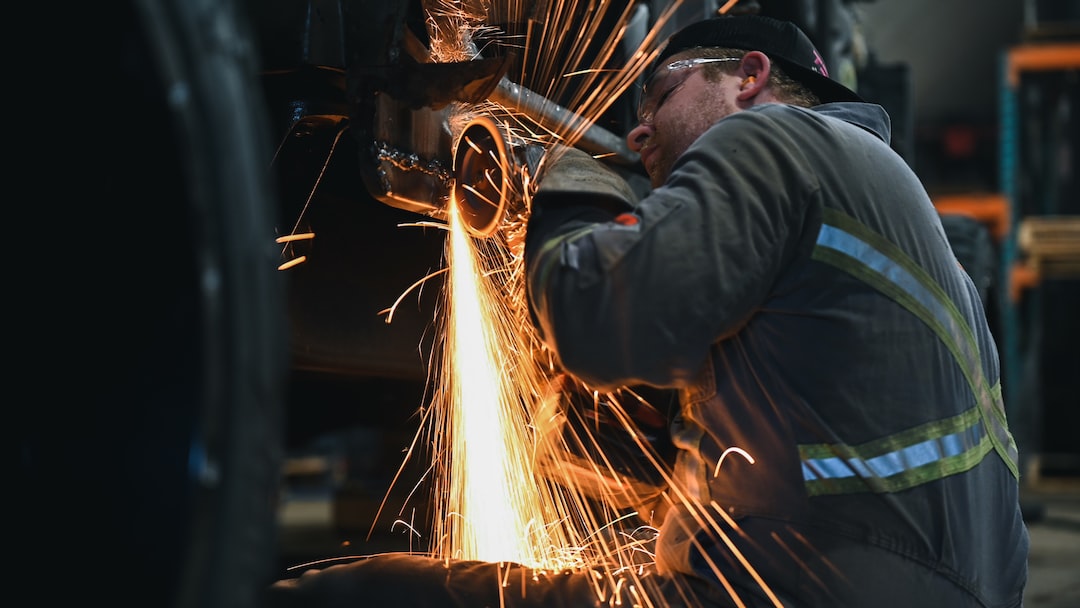The Future of Work in Manufacturing: Skills for the Digital Era
The manufacturing industry has undergone significant transformations over the years, and with the rise of technology, the future of work in this sector is expected to change even more dramatically. The rapid advancement of digital technologies such as artificial intelligence (AI), robotics, and automation are reshaping the manufacturing landscape, making it imperative for workers to adapt and acquire new skills. In this blog post, we will explore the skills required in the digital era of manufacturing and discuss the future of work in this ever-evolving industry.
1. Digital Literacy:
As technology continues to play a crucial role in manufacturing, workers must develop a basic understanding of digital tools and systems. Digital literacy involves the ability to use digital platforms, navigate software, and understand data analytics. This skill is fundamental for operating next-generation machines and leveraging data-driven insights to improve manufacturing processes.
2. Programming and Automation:
As automation becomes increasingly prevalent, workers with advanced programming skills will be in high demand. Programming proficiency allows workers to control and operate automated systems, robots, and machinery. Familiarity with programming languages such as Python or C++ will enable workers to troubleshoot technical issues and adapt to the ever-changing digital manufacturing landscape.
3. Data Analysis and AI:
Manufacturing processes generate vast amounts of data, making data analysis and artificial intelligence crucial skills for the future of work. Workers who can extract actionable insights from data can optimize production, improve efficiency, and enable predictive maintenance. Additionally, understanding AI applications such as machine learning and predictive algorithms will be essential for developing and maintaining intelligent manufacturing systems.
4. Adaptability and Lifelong Learning:
In a digital era characterized by rapid technological advancements, adaptability and a commitment to lifelong learning have become indispensable qualities for workers. Companies will increasingly seek individuals who are open to acquiring new skills and staying updated with evolving technologies. Workers must possess a growth mindset and a willingness to embrace change to thrive in the future of manufacturing.
5. Collaboration and Interdisciplinary Skills:
The digital era of manufacturing emphasizes collaboration between humans and machines. Workers should possess strong teamwork and communication skills to effectively collaborate with autonomous systems and robots. Cross-functional collaboration, involving professionals from diverse backgrounds such as engineering, computer science, and data analytics, will become commonplace in the industry. The ability to work seamlessly across disciplines will enable workers to leverage the full potential of digital technologies.
6. Cybersecurity:
With the increasing digitization of manufacturing processes, cybersecurity is becoming a critical concern. Workers need to be aware of cybersecurity risks and possess the knowledge to protect sensitive production data and systems from potential attacks. Understanding cybersecurity best practices, such as data encryption and network security, will be crucial to safeguard manufacturing operations in the digital era.
7. Creativity and Innovation:
While automation and AI are transforming manufacturing, creativity and innovation remain uniquely human skills. Workers who can think critically, identify opportunities for improvement, and propose innovative solutions will remain in high demand. The ability to combine technical expertise with creative thinking will enable workers to unlock new possibilities and drive continuous improvement in the digital era of manufacturing.
The future of work in manufacturing is undoubtedly being reshaped by digital technologies. While this transformation presents new challenges, it also offers exciting opportunities for workers. By acquiring the skills mentioned above and embracing a growth mindset, workers can navigate the digital era and contribute to a thriving and innovative manufacturing industry.
In conclusion, the future of work in manufacturing will require a combination of technical expertise, adaptability, and interdisciplinary skills. Digital literacy, programming proficiency, data analysis, collaboration, cybersecurity, and creativity will be vital for success in the digital era. As technology continues to advance, investing in skills development and fostering a culture of continuous learning will be key to unlocking the full potential of digital manufacturing. With the right skills and mindset, workers can embrace the future and leverage digital technologies to shape a more efficient, sustainable, and productive manufacturing industry.

